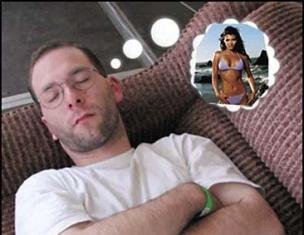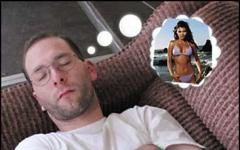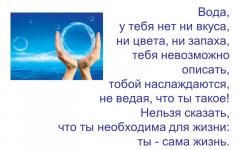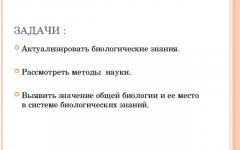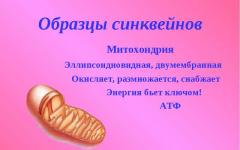- 4 faculties
- 10 cultural and educational language centers
- 18 partner countries
- 10 learning languages
Training format
At NSLU there is a list of compulsory disciplines. During their studies, students have the opportunity to master disciplines of their choice, developing in an additional profile. The session system is standard.
Educational Opportunities
- There are International programs
- There is a Double Degree
Military training
- No Military department
- There is a deferment from the army
Extracurricular activities of NSLU named after. ON THE. Dobrolyubova
At NGLU it is customary to celebrate the Day of Foreign Language "Rusin". Ambassadors of different countries and government representatives often come to the university and give press conferences for students - there is a real opportunity to ask them a question. There are also libraries of literature in foreign languages, where not only books, but original magazines published abroad. The student council and trade union committee organize quests for students at the university at night. There is an educational direction where the trade union committee gives lectures on various topics (how to write a resume, goal setting, etc.). There is also a choir, a squad of counselors, and a gymnastics section. You can try yourself as a reporter, photographer or journalist. Participants of the theater studio perform regularly. There are sports sections (tennis, football, volleyball, basketball, badminton, fitness, cheerleading, etc.), and interuniversity competitions are organized. Students can become members of a political club. Every year, beauty contests are held for boys and girls, as well as various quests and games.
Dormitory
- There is a Dorm
- 935 - 1,412 ₽ According to budget (month)
- 1,420 - 1,950 ₽ Under contract (monthly)
Scholarship
- 2,105 - 3,156 ₽ State scholarship (month)
- 2,820 - 7,000 ₽ For special academic achievements (month)
- 3,156 ₽ For social benefits (month)
Famous graduates
- Pavlov Evgeniy Translator at Technopromexport in Libya
- Bykova Olga Ilyinichna Doctor of Philology, Professor of the Department of German Philology at VSU
The year when provincial higher courses of foreign languages and literatures were organized at the Nizhny Novgorod Department of Public Education under GUBONO.
| Nizhny Novgorod State Linguistic University named after N. A. Dobrolyubov (NGLU, NGLU im. ON THE. Dobrolyubova) |
|
|---|---|

|
|
| International name | Nizhny Novgorod Dobrolyubov State Linguistic University |
| Former names | Gorky Pedagogical Institute of Foreign Languages (GPIFL) |
| Year of foundation | |
| Year of reorganization | |
| Type | state |
| Rector | Nikonova Zhanna Viktorovna |
| The president | Zhigalev Boris Andreevich |
| Students | 3150 () |
| Foreign students | 52 |
| Teachers | 227 |
| Location | Russia, Nizhny Novgorod Nizhny Novgorod |
| Metro | Sennaya(projected) |
| Campus | urban |
| Legal address | st. Minina, 31a |
| Website | lunn.ru |
| Media files on Wikimedia Commons | |
In everyday life of students and residents of the city, the university is referred to as “Inyaz”.
Story
In 1917, at the Nizhny Novgorod GUBONO, higher provincial courses of foreign languages were organized. In 1937, based on the courses, it was founded Gorky Pedagogical Institute of Foreign Languages. The first buildings of the institute (modern buildings No. 1 and No. 2) were built in 1948 on the site of the destroyed Verkhne Posad Trinity Church on Staraya Sennaya (Starosennaya) Square (1844). Before the construction of these two buildings, the institute was located in the building of the former 3rd women's gymnasium in Chernoprudsky Lane (currently the Zhukovsky Library). Currently, the university buildings (4 buildings in total) occupy the entire space of the former Starosennaya Square and the underground space below it.
Initially, the institute trained teachers of English, German, French and Spanish for secondary schools and had, accordingly, three faculties: English, German and Romance languages. Linguists were also trained in the correspondence department.
In 1964, the Translation Faculty of Western European Languages was created.
In the 1990s, a large number of new faculties and departments were created, and the institute was awarded the status of a linguistic university.
Structure
Faculties
- Faculty of English
- Faculty of Romance-Germanic Languages
- Translation faculty
- Faculty of International Relations, Economics and Management
- Faculty of Additional Professional Education of Specialists
Departments
- Department of English
- Department of English Philology
- Department of English Language and Professional Communication
- Department of Theory and Practice of the German Language
- Department of Theory and Practice of the French Language
- Department of English Language, Faculty of Translation
- Department of Theory and Practice of English Language and Translation
- Department of Theory and Practice of German Language and Translation
- Department of Theory and Practice of French Language and Translation
- Department of International Relations and Political Science
- Department of Economics, Management and Informatics
- Department of Valeology
- Department of Oriental and European Languages
- Department of History, Regional Studies and Journalism
- Department of Methods of Teaching Foreign Languages, Pedagogy and Psychology
- Department of Teaching Russian as a Native and Foreign Language
- Department of Russian Philology, Foreign Literature and Intercultural Communication
- Department of Philosophy, Sociology and Theory of Social Communication
Beginning (1917-1935)
The origin of the Nizhny Novgorod Linguistic University is associated with the appearance of foreign language courses in the city in 1917, the initiator of the creation and first director of which wasMax Mikhailovich Landau.
Before the war (1935-1941)
In August 1935, he was appointed director of the courses.Alexander Ivanovich Berezin– a leader with higher pedagogical education and extensive teaching experience in various, including higher, educational institutions.
During the war years (1941-1945)
On the morning of June 22, 1941, the team of the Gorky Institute worked in the rhythm of everyday life. The session was ending, the last exams were underway. Message from the Chairman of the Council of People's Commissars V.M. Molotov about the sudden attack of Nazi Germany on the USSR was heard on the radio at noon. And within an hour, the corridors and rooms of the institute began to fill with excited teachers and students. N
After the war (1946-1960)
Over the five post-war years (1946-1950), 2,281 people were admitted to the Gorky Institute of Foreign Languages. The institute again faced the task of obtaining its own academic building. Due to the lack of space, it was necessary to study in two shifts in rented premises; the reading room was opened only during sessions, and in the evening - in the third shift. In 1949, the task of commissioning its own educational building was finally solved.
During the “thaw” and after... (1961-1975)
Taking into account the well-deserved and quite obvious successes of the institute’s staff, the Council of Ministers of the RSFSR in 1961 named the GPIFL after Nikolai Aleksandrovich Dobrolyubov.
In 1962, by order of the USSR Ministry of Defense and the Ministry of Higher, Secondary and Special Education, a military department was created at the university, which trained military translators. During its existence, this department has trained more than 8,000 reserve officers. Another evidence of the further structural growth of the SPIFL was a special Resolution of the Council of Ministers of the USSR on the opening on its basis of a new structure for training translators from Western European languages. In 1962, training of translator-referents was introduced within the faculties of English and French languages. And two years later, in 1964, a separate translation faculty was created, training translators and referents.
In 1963, the institute's dormitory was put into operation on Gagarin Avenue. The construction of the sports and recreation camp “Linguist” has begun on the picturesque shore of the Gorky Sea, 100 km from the city
Turn of the century (1988-2009)
In 1988, the university held democratic elections of its leader for the first time. The first rector elected by the collective, and not appointed “from above”, wasGennady Petrovich Ryabov.
Faculties:
Department of full-time and correspondence education
The department of part-time and part-time education provides training in the following areas of the Federal State Educational Standard:
p/p | Code directions/ specialties | Name directions/ specialties | Graduate department |
034700.62 | Documentation and archival science | Mathematics and computer science |
|
090900.62 | Information Security | Mathematics and computer science |
|
031300.62 | Journalism | ||
073900.62 | Theory and history of art, profile “Theory and methods of teaching fine arts in secondary and higher schools” | Cultural studies, history and ancient languages |
|
035700.62 | Linguistics, profile “Theory and practice of intercultural communication” | Foreign literature and theory of intercultural communication |
|
080200.62 | Management, profiles "Tourism and hotel business" and "Financial management" | economics and Management |
|
080100.62 | Economics, profile “Finance and Credit” | economics and Management |
|
030600.62 | Journalism | Cultural studies, history and ancient languages |
|
031100.62 | Linguistics (English language) | Department of English Department of English Philology |
|
031100.62 | Linguistics (German) | Department of German Language Department of German Philology Department of Linguodidactics and Methods of Teaching Foreign Languages Department of Pedagogy and Psychology |
|
031100.62 | Linguistics (French) | Department of French Department of French Philology Department of Linguodidactics and Methods of Teaching Foreign Languages Department of Pedagogy and Psychology |
|
080500.62 | Management | economics and Management |
|
030601.65 | Journalism | Cultural studies, history and ancient languages |
|
032001.65 | Documentation and documentation support for management | Mathematics and computer science |
|
070906.65 | History and theory of fine arts | Cultural studies, history and ancient languages |
|
080105.65 | Finance and credit | economics and Management |
|
080507.65 | Organizational management (Specializations: Hotel and tourism business and - Financial management) The training is simply below par. If you think that you will be taught foreign languages at this, so to speak, “university,” forget about it. The maximum that you will be able to do after graduation is to explain yourself on your fingers. So rely only on yourself. Everywhere there is a complete disregard for everything and everyone, and first of all for the quality of education. Half of the classes are lectures read from sight (like dictation - remember the 5th grade of school, Russian language lessons). Students will find out about the cancellation of any classes by waiting for about 40 minutes for the teacher. And now in Foreign Language there is a new feature - to unite small groups with each other. As a result, in addition to the initially low-quality education, we end up with overcrowded groups. Absolutely the same education can be obtained at home with a tutor or at language courses (only you won’t get a crust at the end). And with all this, you will be charged decent money for such disgrace. Very decent. Next year I will graduate with a bachelor's degree in linguistics in German. and I plan to enroll in a master’s program in Moscow (as the circumstances are). Having studied for three years, I can say that the teachers are different. Most of them are excellent, highly qualified teachers, they don’t let students pass (after reading the reviews, I was horrified that this happens in some universities), you have to cram a lot, some teachers are harmful, they don’t really stand on ceremony with students during exams if the latter are a little late. In general, not a single exam was passed poorly. The university building itself and the technical equipment of the classrooms are 5 plus! In my opinion, many hours are devoted to teaching methods, psychology and other disciplines. I would like more practice in the language. My rating for the university is 4! |
Material from Wikipedia - the free encyclopedia
| Nizhny Novgorod State Linguistic University named after N. A. Dobrolyubov (NGLU) |
|||||||||||||||||||||||||||||||||||
| original name |
Higher provincial courses of foreign languages and literatures |
||||||||||||||||||||||||||||||||||
|---|---|---|---|---|---|---|---|---|---|---|---|---|---|---|---|---|---|---|---|---|---|---|---|---|---|---|---|---|---|---|---|---|---|---|---|
| Year of foundation | |||||||||||||||||||||||||||||||||||
| Rector | |||||||||||||||||||||||||||||||||||
| Location |
Russia Russia , Nizhny Novgorod |
||||||||||||||||||||||||||||||||||
| Legal address |
The international cooperationNizhny Novgorod State Linguistic University is carrying out intensive work to enter the global educational space. NSLU cooperates with universities of the Russian Federation, USA, Great Britain, Germany, France, Italy, Sweden , Denmark, Japan, China , South Korea, Turkey. Branches
Write a review on the article "Nizhny Novgorod State Linguistic University named after N. A. Dobrolyubov"LinksGalleryNizhnyNovlyngvouniv01.JPG NizhnyNovlyngvouniv02.jpg NizhnyNovlyngvouniv03.jpg NizhnyNovlyngvouniv04.jpg NizhnyNovlyngvouniv05.jpg
An excerpt characterizing the Nizhny Novgorod State Linguistic University named after N. A. DobrolyubovHe looked straight at Prince Andrei and suddenly pulled the collected skin off his forehead.“Now it’s my turn to ask you why, my dear,” said Bolkonsky. “I confess to you that I don’t understand, maybe there are diplomatic subtleties here that are beyond my weak mind, but I don’t understand: Mack is losing an entire army, Archduke Ferdinand and Archduke Charles do not show any signs of life and make mistakes after mistakes, finally, alone Kutuzov wins a real victory, destroys the charme [charm] of the French, and the Minister of War is not even interested in knowing the details. “That’s exactly why, my dear.” Voyez vous, mon cher: [You see, my dear:] hurray! for the Tsar, for Rus', for the faith! Tout ca est bel et bon, [all this is fine and good,] but what do we, I say, the Austrian court, care about your victories? Bring us your good news about the victory of Archduke Charles or Ferdinand - un archiduc vaut l "autre, [one Archduke is worth another,] as you know - even over a company of Bonaparte’s fire brigade, that’s another matter, we’ll thunder into the cannons. Otherwise this , as if on purpose, can only tease us. Archduke Charles does nothing, Archduke Ferdinand is covered in shame. You abandon Vienna, you no longer defend, comme si vous nous disiez: [as if you told us:] God is with us, and God is with you, with your capital. One general, whom we all loved, Shmit: you bring him under the bullet and congratulate us on the victory!... Agree that it is impossible to think of anything more irritating than the news you bring. C "est comme un fait expres, Comme un fait expres. [It’s as if on purpose, as if on purpose.] Besides, well, if you had definitely won a brilliant victory, even if Archduke Charles had won, what would it have changed in the general course of affairs? It is too late now that Vienna is occupied by French troops. -How busy are you? Is Vienna busy? “Not only is she busy, but Bonaparte is in Schönbrunn, and the count, our dear Count Vrbna, goes to him for orders.” Bolkonsky, after the fatigue and impressions of the journey, the reception, and especially after dinner, felt that he did not understand the full meaning of the words he heard. “Count Lichtenfels was here this morning,” Bilibin continued, “and showed me a letter in which the French parade in Vienna is described in detail. Le prince Murat et tout le tremblement... [Prince Murat and all that...] You see that your victory is not very joyful, and that you cannot be accepted as a savior... - Really, it doesn’t matter to me, it doesn’t matter at all! - said Prince Andrei, beginning to understand that his news about the battle of Krems really had little importance in view of such events as the occupation of the capital of Austria. - How was Vienna taken? What about the bridge and the famous tete de pont [bridge fortification] and Prince Auersperg? “We had rumors that Prince Auersperg was defending Vienna,” he said. “Prince Auersperg stands on this, our side, and protects us; I think it protects very poorly, but it still protects. And Vienna is on the other side. No, the bridge has not yet been taken and, I hope, will not be taken, because it is mined and they have ordered it to be blown up. Otherwise, we would have been in the mountains of Bohemia long ago, and you and your army would have spent a bad quarter of an hour between two fires. “But this still does not mean that the campaign is over,” said Prince Andrei. - And I think it’s over. And so the big caps here think, but they don’t dare say it. It will be what I said at the beginning of the campaign, that it is not your echauffouree de Durenstein, [the Durenstein skirmish] that gunpowder will decide the matter, but those who invented it,” said Bilibin, repeating one of his mots [words], loosening his skin on the forehead and pausing. – The only question is what the Berlin meeting of Emperor Alexander with the Prussian king will say. If Prussia enters into an alliance, on forcera la main a l "Autriche, [they force Austria] and there will be war. If not, then the only question is to agree on where to draw up the initial articles of the new Campo Formio. [Campo Formio.] – But what extraordinary genius! - Prince Andrei suddenly cried out, squeezing his small hand and hitting the table with it. - And what happiness is this man! - Buonaparte? [Buonaparte?] - Bilibin said questioningly, wrinkling his forehead and thereby making it felt that now there would be an un mot [word]. - Bu onaparte? - he said, emphasizing especially the u. “I think, however, that now that he is prescribing the laws of Austria from Schönbrunn, il faut lui faire grace de l"u [we must rid him of i.] I decisively make an innovation and call it Bonaparte tout court [simply Bonaparte]. “No, no joke,” said Prince Andrei, “do you really think that the campaign is over?” | ||||||||||||||||||||||||||||||||||



